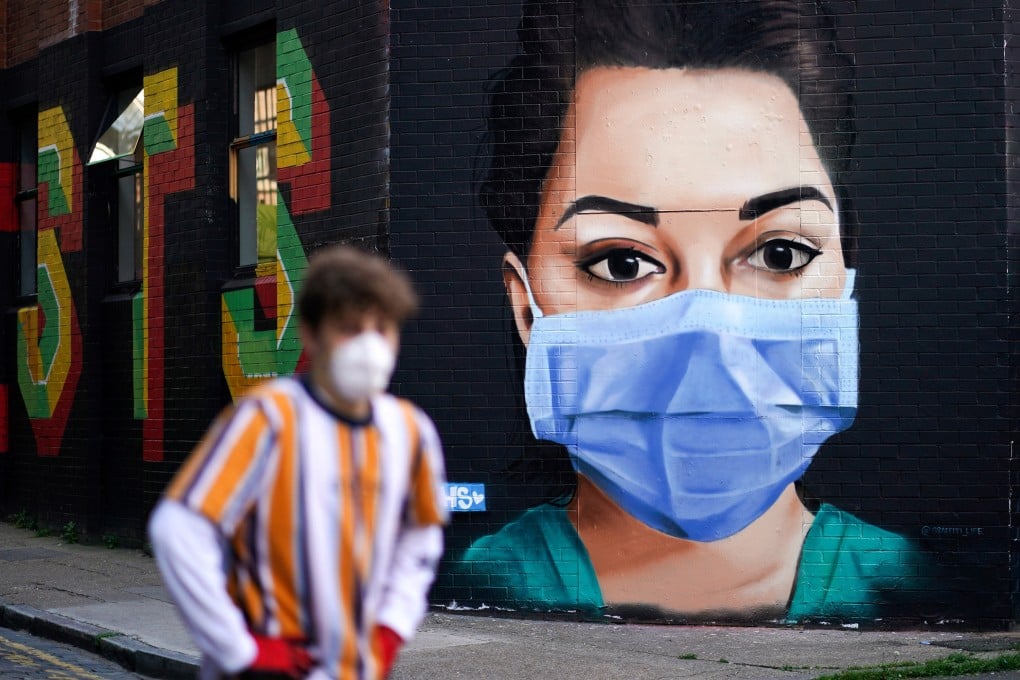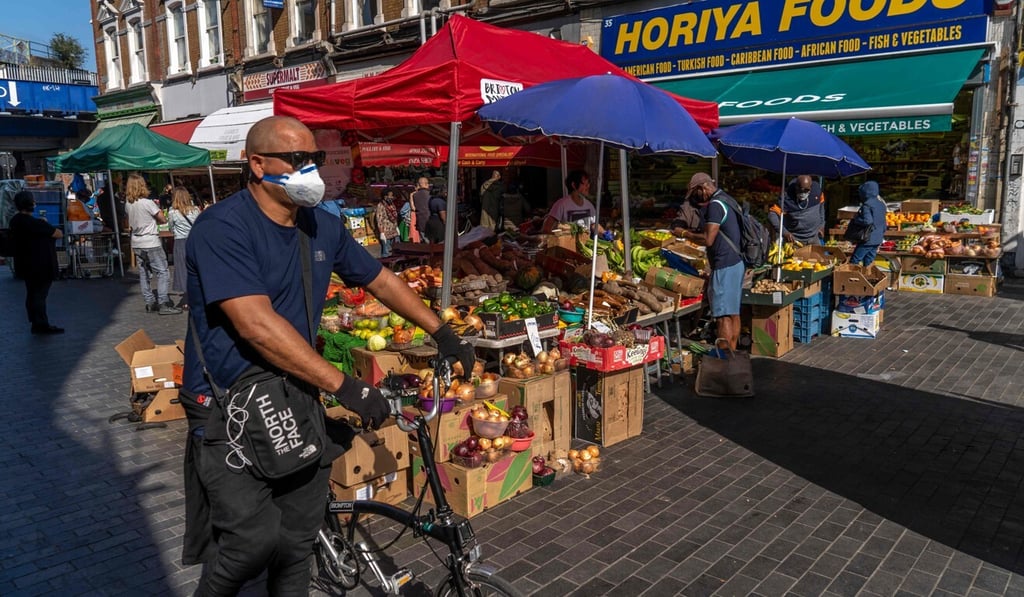Advertisement
Coronavirus: UK government faces growing criticism as Britain’s hospital death toll hits 20,000
- Britain has the fifth-highest official coronavirus death toll in the world, after the US, Italy, Spain and France
- The total number of deaths is likely to be thousands higher once figures that include deaths in nursing homes are added
Reading Time:3 minutes
Why you can trust SCMP

Britain on Saturday passed the grim milestone of over 20,000 coronavirus deaths, as the daily toll rose 813 to 20,319 people who tested positive for the illness and died in hospital.
Back in mid-March, the government’s chief scientific adviser said that keeping the death toll below 20,000 would be a “good outcome”.
The British government is facing growing criticism over its response to the new coronavirus pandemic as the death toll rises. Britain was slower to impose a lockdown than its peers in Europe and is struggling to raise its testing capacity.
The country has the fifth-highest official coronavirus death toll in the world, after the United States, Italy, Spain and France. Scientists have said that the death rate will only start to decline quickly in another couple of weeks.
Advertisement
The total number of deaths is likely to be thousands higher once more comprehensive but lagging figures that include deaths in nursing homes are added. As of April 10, the hospital toll underestimated deaths by around 40 per cent.

Advertisement
Prime Minister Boris Johnson is still recovering after falling seriously ill with Covid-19 earlier this month and in his absence, government ministers have been struggling to explain high death rates, limited testing and shortages of protective equipment for medical workers and carers.
Health ministry data published on Saturday showed that 28,760 tests were carried out on 24 April. That is likely to put further pressure on the government given its target of hitting 100,000 tests per day by the end of April is just days away.
Advertisement
Select Voice
Select Speed
1.00x